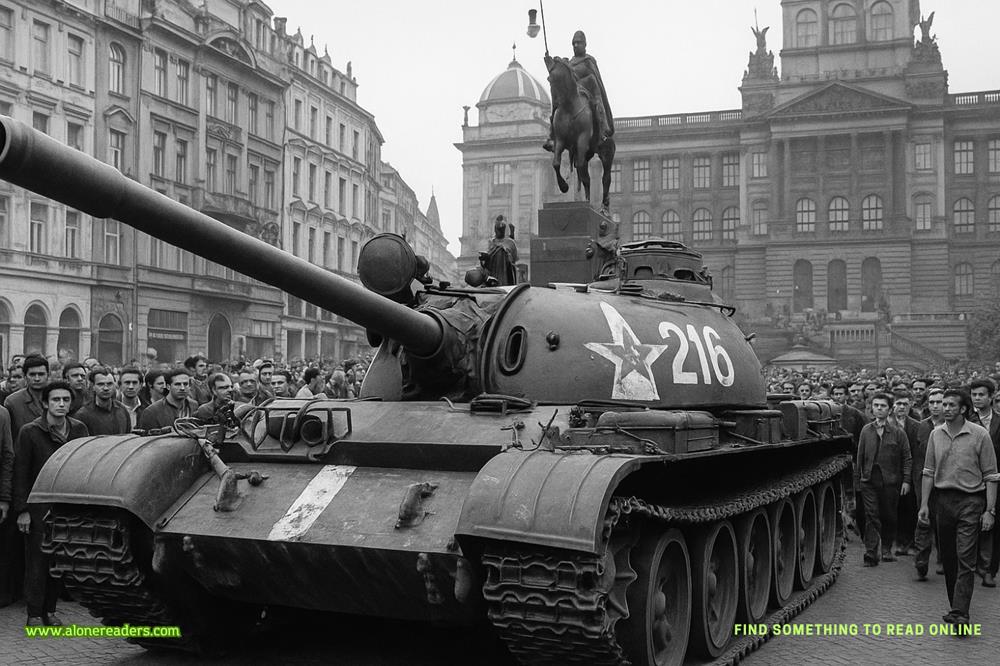Page 202 of The Jasad Crown
“Excellent,” I said. “I love a good theory.”
I burst into tears.
My sisters immediately crowded around me. Dania wrapped her arms around my shoulders, leaning her head against mine. Baira pulled my palm to her cheek and drew soothing circles on the back of my hand. Kapastra, who hated touch as much as I once had, patted my knee and attempted to distract me by asking questions in various dead languages.
I wasn’t alone. I might not be where I wanted to be, but I was not alone.
“Tell us about everyone you love,” Dania murmured, drawing a curl away from the warpath of my tears. “Tell us about the lives of Sylvia and Essiya.”
“We have plenty of time,” Baira added.
I laughed, wiping my eyes with the heels of my hands.
“You can show us, too, if you’d like,” Kapastra said. My most somber sister gestured at the scene around us. “We can help you remember this time.”
And they did.
LUKUB
ONE MONTH AFTER THE ENTOMBMENT
Sefa sat before a council of strangers in a shoddily sewn dress, and she read the scroll set in front of her a fourth time.
“This isn’t right,” Sefa said, also for the fourth time. “Can this even be done?”
The sour-faced man by the name of Biyad, who had summoned Sefa to the Ivory Palace with a vague and threatening letter, gestured at the three men beside him. “She had it written, witnessed, and signed two weeks before Sedain. There is no law in Lukub preventing the crown from being passed to someone outside the line of inheritance, and the line died with Sultana Vaida. She chose you for Lukub’s throne, and it is our duty to uphold her wishes.”
“We don’t know if she is dead,” Sefa said. “Her body was never recovered.”
Biyad sighed. “We did not summon you until we had exhausted every effort to find the Sultana.”
Sefa traced the dainty signature at the bottom of the scroll. Sefa was not fit to rule a room, let alone a kingdom. What had Vaida been thinking?
Sefa could scarcely convince herself to put food in her mouth. Dark circles cratered the bottom of her sunken eyes, and she had lost any sense of time. She rarely left the bed Lateef had offered her in Jasad, and making the trek to Lukub had only worsened her sleeping issues.
Her body might be sitting here, but the most important parts of Sefa had buried themselves beside Marek. His chest lay still, so she stopped breathing. He decayed, and so did she.
If any meaningful part of Sefa had tried to survive, the reminder of Essiya’s fate slaughtered it. Sefa had drawn a shroud over her remaining scraps, laid down, and stayed still for a very, very long time. It wasn’t until Jeru poured water over her head that Sefa had spluttered back to life.
“I made him a promise that no harm would come to you,” he’d said, tossing the empty bucket onto her bed. “I intend to keep my word.”
As Sefa shrank before the Lukub council, the cavern of the unknown future cracking open in her chest and threatening to swallow her whole yet again, a hand settled over her shoulder.
Jeru scanned the scroll. “Give her a chance to think.”
“Lukub is in turmoil,” Biyad said. “Our Sultana is gone, the palace is in disrepair, and the rise of the Jasad crown is cause for grave concern.”
An arrow of anger pierced through the shroud of numbness around Sefa. “Lateef—Malik Lateef,” Sefa corrected, “has done nothing to earn your grave concern. Jasad has done nobody harm.”
“Their magic—”
“Does nobody harm,” Sefa hissed. “I have it, too. So does Jeru. So do hundreds of Nizahl soldiers. Do we all intend you harm?”
Tears suddenly choked her. How dare they? After everything.
Sefa had asked Lateef what his magic felt like, and he described a gentle rhythm, pulsing in tune to his own heart. Easy to ignore,but easy to find if you went searching. The bits of magic Sefa had absorbed from the fortress felt like a finger she had suddenly grown out of her elbow, and she had not quite figured out what to do with it.
Meanwhile, Jeru used the magic he gained on the battlefield of Nuzret Kamel regularly and enthusiastically. Just this morning, he had drained his stores trying to turn his horse’s coat the same color green as the trees. “For camouflage,” he had insisted.
- Sold to the Silver Foxes by Laylah Snow
- My Brother's Best Friends by Natasha L. Black
- The Rancher's Addiction by Lila Fox
- The Biker's Hidden Obsession by Khloe Summers
- Mile High Coach by Mia Mara
- Off-Limits as Puck by Kate Olivia
- Love Off Course by K. Webster
- Desert Sky by Jax Hart
- Their Darkest Needs by Amaya Jax
- Love & Vendettas by Cassie Verano
- Iron Bride by Molly Briar
- The Omega's Bloodline: Part One by Sierra Cassidy
- Forever In Willow Creek by Jade West
- Where the Blacktop Ends by Sofia Jade
- The Crown of Nyx by Audrey Moore
- Deep Feelings & Shallow Graves by Gwendoline Rose







